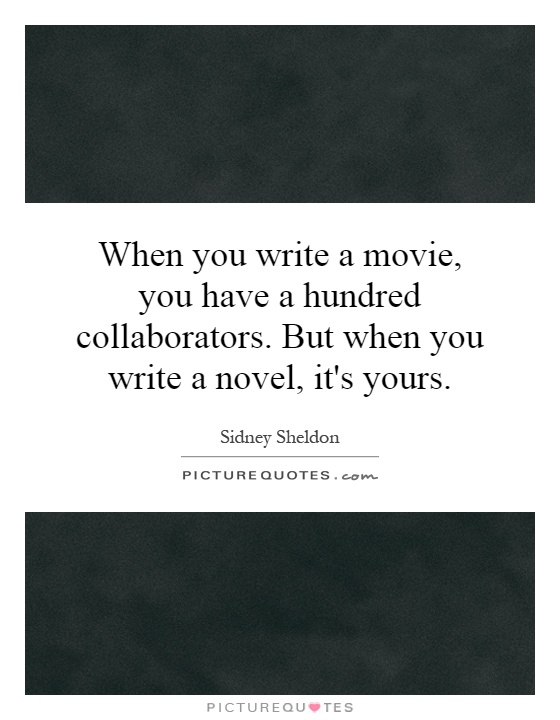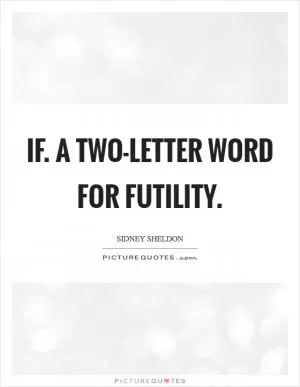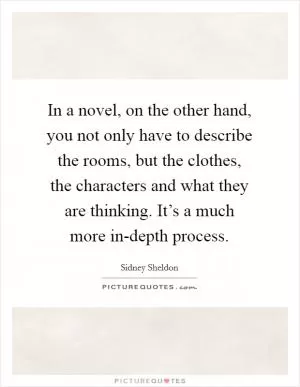When you write a movie, you have a hundred collaborators. But when you write a novel, it's yours

When you write a movie, you have a hundred collaborators. But when you write a novel, it's yours
Sidney Sheldon was a prolific writer who excelled in both the realms of film and literature. He understood the unique challenges and rewards that came with each medium, and his quote, "When you write a movie, you have a hundred collaborators. But when you write a novel, it's yours," perfectly encapsulates the differences between the two.In the world of film, a screenplay is a collaborative effort that involves input from directors, producers, actors, and various other members of the production team. Each person brings their own vision and interpretation to the script, shaping the final product in ways that the original writer may not have anticipated. While this collaborative process can lead to innovative and exciting results, it can also dilute the writer's original vision and intent.
On the other hand, writing a novel is a solitary endeavor that allows the author complete control over every aspect of the story. From the characters and plot to the setting and tone, the writer has the freedom to craft a world that is entirely their own. This level of creative autonomy can be both empowering and daunting, as the success or failure of the novel ultimately rests on the writer's shoulders.
Sidney Sheldon was known for his gripping and suspenseful storytelling, which translated seamlessly from the page to the screen. His novels, such as "The Other Side of Midnight" and "Master of the Game," were adapted into successful films and television series that captivated audiences around the world. Sheldon's ability to navigate the worlds of both film and literature speaks to his versatility as a writer and his understanding of the unique challenges and opportunities that each medium presents.












 Friendship Quotes
Friendship Quotes Love Quotes
Love Quotes Life Quotes
Life Quotes Funny Quotes
Funny Quotes Motivational Quotes
Motivational Quotes Inspirational Quotes
Inspirational Quotes